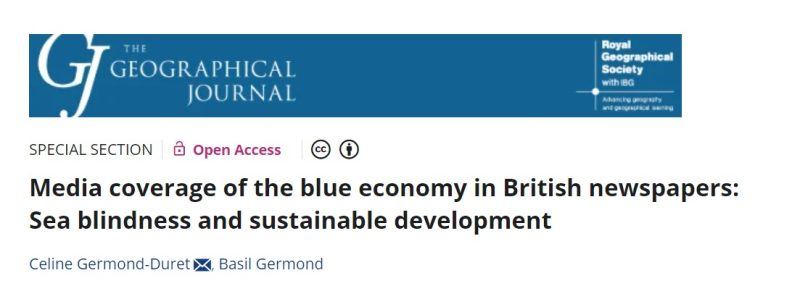

Geography has engaged in insightful discussions on how to understand, analyze, criticize, and implement the blue economy. United Nations agencies, Small Island Developing States, and increased academic interest in oceans have played important roles in the global adoption of the blue economy idea, that is, the sustainable exploitation of marine and coastal resources. Geographical research on the blue economy has addressed key themes such as economic and political discourse, relational thinking and assemblage, sustainability and just transitions, and blue economy risks.
This article is available from here.
How to cite: Germond-Duret, C., Garland, M., Heidkamp, C.P. and Morrissey, J. (2024). Blue Economy. In International Encyclopedia of Geography (eds D. Richardson, N. Castree, M.F. Goodchild, A. Kobayashi, W. Liu and R.A. Marston). https://doi.org/10.1002/9781118786352.wbieg2166




